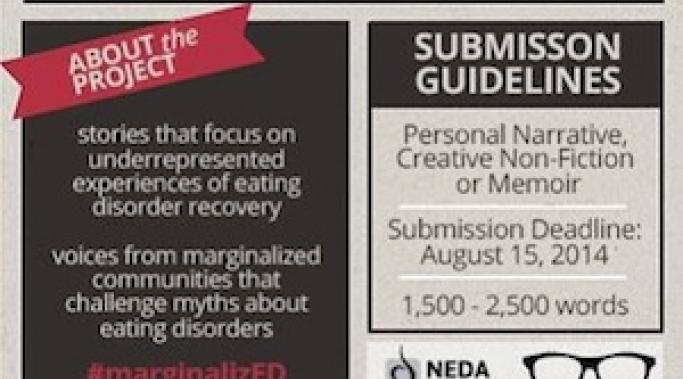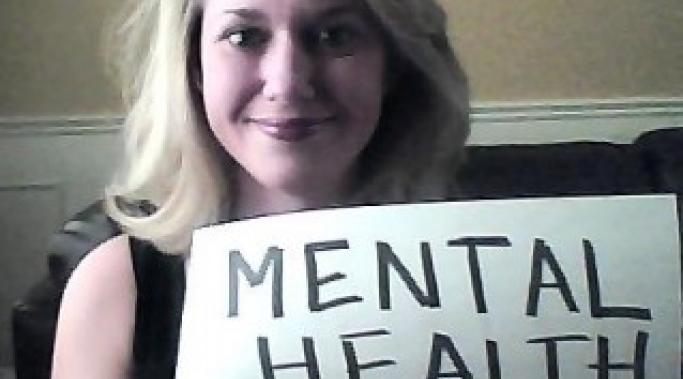One of the things that I have had to learn (over and over again) throughout the course of my recovery from anorexia, is that urges don't last forever. Regardless of how strong the desire is to use a certain behavior, it will pass and I can get through without derailing my eating disorder recovery. "How?" you might ask. That's right, folks -- we're talking about coping skills again.
Surviving ED
Raised in a mixed French and Irish household, the stove was the center of my childhood. I guess that made me predestined to be a foodie who now enjoys food, wine, cooking and baking. As I made my way through eating disorder recovery, I also found myself taking comfort in learning how to prepare most of the foods I grew up with, but used to deny myself for many years. Often, people who meet me now are a bit perplexed about how I can balance a passion for food, knowing that I struggled with an eating disorder for a number of years. I thought I’d share a little bit of how this "works."
As a voice for eating disorders awareness, education, and advocacy, I am glad to have a platform such as this blog where my voice can be "heard." Too often, popular media portrays a one-dimensional view of eating disorders. That said, I struggle with the fact that I am the exact stereotype that you see on television and in movies. I am a Lifetime Movie or After School Special waiting to happen. I am white, female, young, heterosexual, intelligent, middle class, and anorexic.
If you’ve read my blog for a while, you’ll remember that my eating disorder recovery started a little over 6 years ago when I found myself in the hospital, facing the physical consequences of binging and purging since I suffered from bulimia for most of my life as a young adult.
What I haven't focused on in previous posts, was that at the time I decided to get better, I didn’t have the resources to see a therapist, nor was our public health system available to help as I would have liked. So, not unlike many others facing an illness with a lack of adequate resources or treatment options, I did what I could on my own at first to pick myself up from rock bottom.
Deciding to recover from anorexia was not an easy decision. In my experience, it has been one step forward and three strides sprinting backwards. It was hard to make that decision and stick to it. And it was hard for family and friends to understand why I was so ambivalent about eating disorder recovery - after all, wasn't living with an eating disorder miserable? Why wouldn't I want to get better?
Two years ago this fall, I took a yoga workshop which dealt with inverted positions, such as headstands. There was a point in the workshop when we were asked to do an exercise which addressed our fears. This was not at all related to eating disorders, and it wasn’t therapy, but it was a profound experience for me.
I thought I'd share it with you today because it opened up my eyes and helped me deal with deep emotions which were holding me back at the time.
Last month, I was traveling with family and friends and had a chance to see just how far my recovery from anorexia has come. When I went back to inpatient treatment over a year ago, I wanted to get better - to recover - but was honestly starting to doubt if it was possible. It was my third trip to treatment in as many years. It hadn't "worked" before, so why would now be any different? Even in the year since returning from treatment, it hasn't looked so great at times.
Though I am very public about my past experiences with an eating disorder and my recovery maintenance, it still doesn’t mean everyone I interact with knows every aspect of my past. So, sometimes, when I’m out eating with a group of people, someone will start to mention about a diet or some form of dietary restriction (e.g. vegetarian, paleo, etc.) they follow.
Usually when that happens, I’ll listen with empathy if it is needed, but I will rarely engage with my own thoughts on diets and weight loss. Part of the reason for this, is that it is a different dynamic when you are in a group, rather than one-on-one, but also part of my recovery is not always making every social interaction about my food, diet, and body image.
I've gone through a lot of body changes in the past year as I have worked on recovering from anorexia nervosa. And I’ve definitely done my best to deal with those changes and even accept them, but I’m not looking at myself in the mirror thinking, “Wow! I look great! I’m so glad I’m not sick any more!”
At the same time, I’m not constantly analyzing the way my butt looks in this pair of jeans or that skirt or trying on six different outfits a day like I used to. I don’t think I need to lose weight. I know I might look “better” (whatever that means) if I worked out a bit more, but it’s really not that big a deal to me.
So why do I still want to skip meals at times?
I recently found myself on the road for work, traveling and connecting with a lot of people and, therefore, creating wonderful memories with them. When I had a quiet moment to myself, while waiting at the airport, I came across an article written by a celebrity. The article was her first-hand account of a long battle with her eating disorder. Of course, I felt compelled to read it once I got through the first few lines and realized what it was about.









